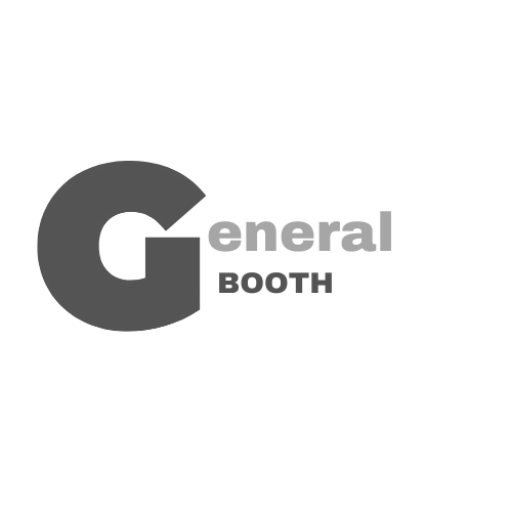So you are planning to start a cleaning business and want to know what licenses are needed to start a cleaning business, then you are in the right place.
Key Takeaways:
In this guide, you will get to know about the following:
- Understanding why we need a license.
- Types of licenses you need.
- How to get those licenses?
- Role of insurance for a cleaning business.
- Types of insurance.
Understanding the Legal Requirements for a Cleaning Business
Starting a new business might be a good journey or profitable. But for starting a new business you need to be careful with planning and legal regulation.
Before starting a business, the most important part is to obtain the necessary licenses and permits. It plays a big role in building clients’ trust.
Why Does Your Cleaning Business Need a License?
It’s the Rules
A business license is like permission from your city or town to run your cleaning business. Without it, you could get in trouble, like getting a fine or being told to stop working.
It Makes People Trust You
When you have a license, it shows people that your business is real and honest. Customers like to hire companies that follow the rules.
You Can Get Insurance
A license helps you get insurance, which is like a safety net. If something gets broken or someone gets hurt while you’re cleaning, insurance can help pay for it.
Paying Taxes
When you have a license, you can pay your taxes the right way. Taxes help your community by paying for things like schools, parks, and roads.
Helps Your Business Grow
Big jobs or contracts often ask if your business has a license. Without it, you may miss out on good opportunities.
Protects You from Problems
If there’s a disagreement or problem with a customer, having a license can help you sort things out legally.
Looks Good on Ads
When you say, “We’re licensed and insured!” in your ads, people feel more confident hiring you because they know you’re trustworthy.
Types of licenses you need.
- Business License: A general license that allows you to legally run your cleaning business in your city or state.
- Tax Registration: This lets you collect and pay taxes for your business.
- Vendor’s License: A vendor’s license must be obtained when you sell cleaning products through direct transactions with customers.
- Special Permits: Personally need these permits to work with hazardous cleaning chemicals that exist in certain regions.
- Employer Identification Number (EIN): Your business requires this license-like identification number to hire workers.
- Bonding License: Your business insurance shows customers that you can cover costs in case an accident occurs.
- Local Permits: Your city might ask for additional permits to both operate a business from your residence and to receive zoning approval.

How to get those licenses?
Business License: To start your business, obtain a license, go to your local city or county, where you must complete paperwork and pay specific charges.
Tax Registration: Getting a tax ID requires registration with your state’s tax office.
Vendor’s License: If you intend to market cleaning products then conduct your application to sell at your state or local government governmental office.
Special Permits: To determine if you require permits for chemical handling, check with your city or state office.
Employer Identification Number (EIN): For business owners who hire employees, they must register at no cost on the IRS website.
Bonding License: You should work with a bonding firm to receive insurance coverage and bonding certification.
Local Permits: Contact your city office for information about supplementary permits you might need.
State and Local Licenses for Cleaning Services
Professionals need state and local licenses as written permission to conduct business operations under legal guidelines. Your city or state needs licenses from you to prove you follow the rules. Your business gets credibility by displaying its official license that proves it is both authentic and trustworthy. Business insurance becomes available to you through licenses, thereby covering you during cleaning operations.
A license enables you to contribute to your community by paying taxes. Business licenses act as important trust markers that motivate many customers to choose from licensed providers. Starting and expanding your cleaning business requires getting proper licenses that serve as fundamental steps for success.
Role of insurance for a cleaning business.
A cleaning business depends heavily on insurance because this safety protocol protects both employees and customers as well as the company itself. Insurance benefits will cover the costs of accidents and upkeep damage.
The insurance creates financial coverage for cleaning businesses during incidents such as when employees break items or hurt customers which both require payment for expenses. Insurances cover expenses from legal settlements in addition to billing costs.
Businesses that lack insurance must pay these costs themselves, which tends to be a major financial burden. Customers trust your business more with insurance because this demonstrates that you are ready to handle accidents.
Insurance acts as your financial protector against unforeseen trouble so you can remain secure. Business operations continue uninterrupted in times of problems because your cleaning business has appropriate insurance coverage.
Types of insurance you need before starting a cleaning business:
For a cleaning business, there are a few types of insurance that are really important:
- General Liability Insurance: This is the most common type. Your business stays protected regarding personal injuries and property damage incidents during cleaning operations, which include situations like vase breakage or carpet spills.
- Workers’ Compensation Insurance: Through Workers’ Compensation Insurance, businesses protect their workers by covering medical bills and lost wages while paying for work injuries sustained at the workplace.
- Property Insurance: The protection called General Liability Insurance safeguards both business property and equipment and supplies in instances of damage and theft.
- Bonding Insurance: Through Bonding Insurance, companies create safeguards to defend client property from theft and misuse by dishonest personnel in your institutional workforce.
- Commercial Auto Insurance: When business-use accidents or damages impact your vehicle this insurance coverage offers protection to you.
- Professional Liability Insurance: Under Professional Liability Insurance, your business obtains coverage, which is also called “errors and omissions insurance,” to protect you against customer claims seeking compensation for professional mistakes resulting in financial loss.
Bonding and Insurance Requirements for Cleaning Businesses
Your business profile determines the total cost needed for bonding and insurance services. Your local jurisdictions have detailed regulations for insurance and bonding requirements, which you should research. The combination of bonding and insurance protects your cleaning business while creating safety and trustworthiness for your clients.
Conclusion:
Success in starting your cleaning business demands thorough preparation, above all else, for obtaining licenses and insurance requirements. Your business stays legitimate through licenses and tax registration with other required permits, which creates customer trust.
Your business needs appropriate coverage, including general liability and workers’ compensation insurance, to stay financially secure while also protecting your business from destructive incidents that might happen. Your business begins its path toward growth and success when you fulfill legal regulations and obtain proper insurance coverage, which protects your business while establishing yourself as a trustworthy cleaning service operator.
FAQs
1. Business license requirements exist for a person starting a cleaning business.
Business owners must obtain a license before they can start their cleaning business operation legally. Permission obtained through the business license enables you to operate your enterprise across your city or state without encountering fines or shutdowns. The application process for this license exists at your local government office.
2. The cleaning business requires what insurance coverage types?
Running a cleaning business requires insurance policies that combine general liability coverage alongside workers’ compensation protection and protection of properties and commercial vehicles through both bonding and auto insurance. This insurance package protects everything from business-related accidents through theft events and damage incidents to ensure total business protection.
3. Will I require an Employer Identification Number (EIN) to operate my business?
Employer Identification Numbers from the IRS become necessary when you bring an employee onto your business team. This numerical identifier functions as a tax requirement that business operators must obtain if they employ workers.
4. Bonding policy exists for what purpose and do commercial companies need it?
Certain businesses must acquire a bonding license to ensure the protection of customer funds during instances where your staff members commit theft or dishonest acts. Bonding insurance provides businesses with protection and should be considered for maintaining client trust but it remains optional.
5. What special permits need to be obtained for cleaning hazardous materials?
Your cleaning business requires special permits to work with hazardous materials, including specific chemicals or biological products. Contact your state or local government for information about requirements throughout your area.



